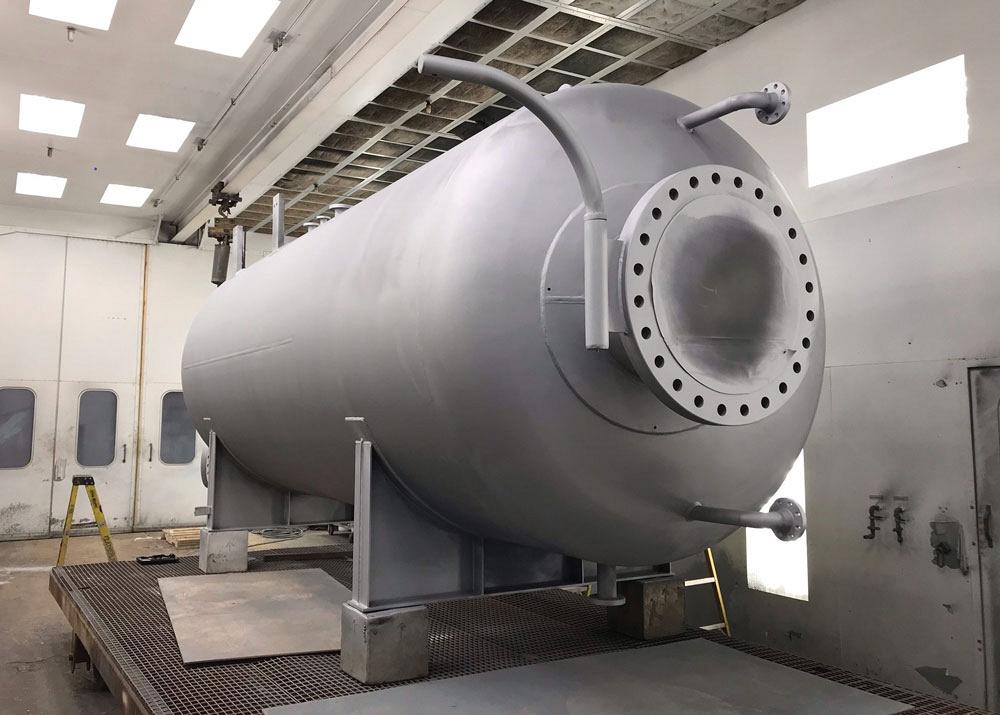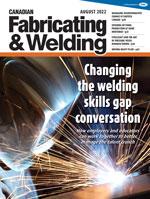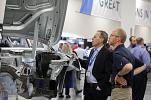Associate Editor
- FMA
- The Fabricator
- FABTECH
- Canadian Metalworking
Little room for error
Steelcraft has spent almost 100 years perfecting the art of pressure vessel manufacturing
- By Lindsay Luminoso
- September 9, 2022
- Article
- Fabricating
Generally speaking, a pressure vessel is an enclosed container or storage tank that holds liquids, vapours, and gases at pressures higher or lower than ambient pressure. These components are used in a variety of industries including the energy and food processing sectors.
Some examples of pressure vessels include reactors, flash drums, separators, and heat exchangers. Pressure vessels must operate within their designed safety limits, which include temperature and pressure parameters. The potential health and safety hazards associated with damaged, cracked, or flawed components can be catastrophic as leaks can lead to poisonings, suffocations, fires, and explosions. Proper design, fabrication, and testing of pressure vessels is essential for operational success and avoiding issues in the field.
Enter Steelcraft, a metal fabricator headquartered in Kitchener, Ont., with manufacturing facilities in Cambridge, Woodstock, and Stratford, Ont. In its almost 100-year history, the manufacturing giant has steadily grown, expanded capabilities, and partnered with some of the world’s most respected OEMs and customers in the agriculture, chemical, commercial, construction, defence, energy, industrial, mining, and water treatment industries. One of its core product categories focuses on pressure vessel manufacturing.
Since 1923, the company has grown significantly through customer relationship development and strategic acquisition of similar businesses including Clemmer Industries, Festival City Fabricators, Bowers Process Equipment, and Brute Manufacturing. In December 2021, the company was acquired by Guelph, Ont.-based Arrow Machine and Fabrication Group, a growing global supplier of machined castings and highly engineered metal fabrications.
Steelcraft boasts a highly skilled workforce of approximately 350 employees across its four manufacturing facilities, which offers approximately 375,000 sq. ft. of manufacturing space. Each individual facility is uniquely tailored to support specific industries including defence and military, mining and heavy-duty equipment, and engineered products for OEMs and end users.
More specifically, the company offers in-house professional engineering, welding, machining, plasma cutting, laser cutting, and finishing services for mild steel, stainless steel, aluminum, nickel alloys, and a range of other specialty alloys.
Pressure Vessel Manufacturing
"As far as pressure vessels are concerned, we believe that the company’s competitive advantage is twofold," said Matthew Lunn, sales manager, engineered products division, Steelcraft Inc. "First, we employ highly competent and experienced team members in both our plants and our offices who are committed to driving customer value each and every day, and second, we partner with our customers as a one-stop shop for design, engineering, and customized metal fabrication."
Within the pressure vessel product segment, Steelcraft supports a variety of applications, including domestic hot water storage vessels for industrial and high-rise residential use, pressure vessels for the chemical industry, surge vessels for boiler feed systems, autoclave vessels for aerospace and lumber processing, and heat exchangers for a variety of chemical and industrial end users.
Pressure vessels generally are fabricated from a range of materials including carbon steel, stainless steel, and specialty alloys. The company has partnered with its customers to produce vessels ranging from 15 to 3,000 PSI.
Once the design is approved by the customer, the company orders all of the raw materials from their vendor network. When the materials arrive, it then starts the manufacturing process, which includes shell rolling and fit-up, head fit-up, circumferential and long-seam welding, coupling/manway/nozzle layout and welding, saddle/leg fit-up and welding, hydrostatic testing, and then blasting, painting (carbon steel vessels), polishing, or pickling/passivation (stainless steel vessels).
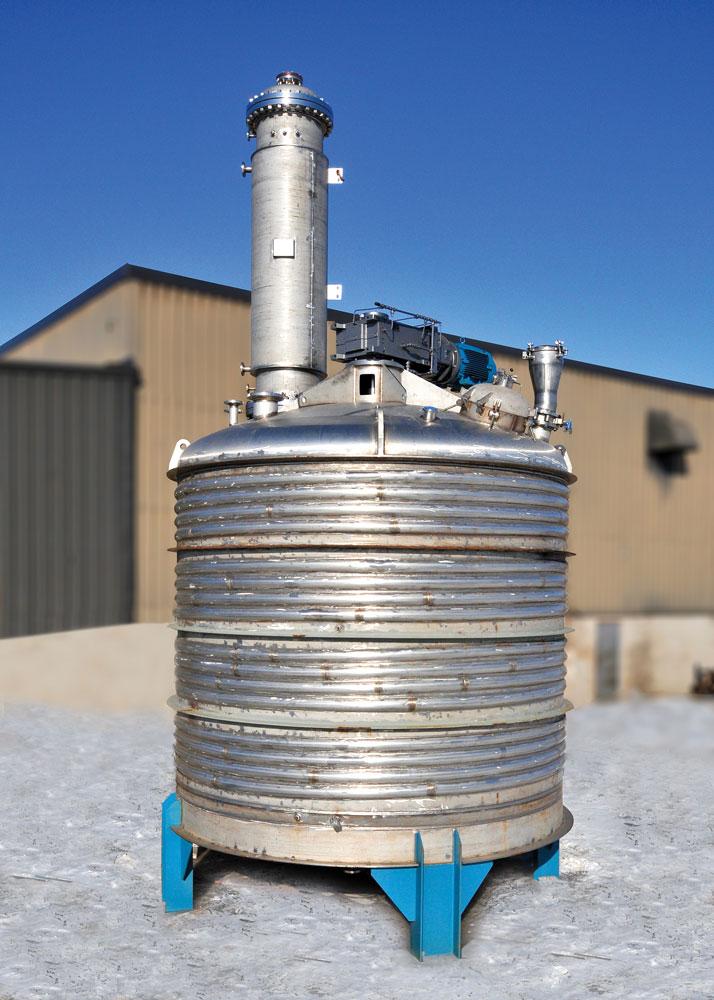
Steelcraft produces domestic hot water storage vessels, pressure vessels for the chemical industry, surge vessels for boiler feed systems, autoclave vessels for aerospace and lumber processing, and heat exchangers for a variety of chemical and industrial end users.
Steelcraft uses a variety of equipment to manufacture pressure vessels including material handling equipment, shell rollers, sub-arc welding systems, gouging equipment, grinding equipment, and blast and paint booths. Depending on the vessel geometry, Steelcraft also has machining capabilities up to 13 ft. diameter.
Fitter/welders for ASME-rated pressure vessels must ensure that they produce leak-free, full-penetration welds. This involves laying down a root pass, gouging out the backside of the root pass, and then laying down additional capping passes to deliver a fully welded joint. Ensuring correct coupling/manway/nozzle location and orientation prior to welding also is critical.
For Steelcraft, there are a number of unique aspects to working in the pressure vessel manufacturing sector.
"First, you absolutely must have a highly competent sales, engineering, and operations team capable of collaborating with customers both at a high-level view—understanding project goals, timelines, overall scope—and at a more granular level to ensure that techno-commercial changes are fully understood and reconciled with our customers."
The implications of a misunderstanding by either party can be commercially significant, which is why the company has a well-structured and gated approach to its quoting, contract review, approval drawing submission, and project release activities.
"Second, you must have a highly skilled team of ASME-certified fitter/welders that can build a wide variety of vessels accurately and efficiently," said Lunn. "As with any metal fabrication business, the ability to build vessels correctly the first time is what ultimately creates customer value and drives the company’s sustainability. There is little room for error on the floor of a pressure vessel shop."
Another significant feature of working in pressure vessel manufacturing is the importance of maintaining clear and comprehensive quality documentation for each project since the industry is highly regulated. This can include material test reports (MTR), welding procedure specifications (WPS) and procedure qualification records (PQR), along with a final non-destructive examination (NDE), and sign-offs by the applicable governing authority, such as the Technical Standards and Safety Authority (TSSA), for example.
In the custom metal fabrication business, almost every project is fundamentally different from the last. As a result, each project presents its own unique challenges that must be clearly defined and addressed at all phases of the process.
According to Lunn, from a technical challenge standpoint, dealing with vessels with cyclic temperatures can require significant analysis and research to design and manufacture the correct component. Combining technologies such as vessels, heat exchangers, and mixers, also can present some interesting challenges when delivering overall process equipment.
"One thing we’ve noticed in recent years is an increased customer migration to stainless and some nickel alloys from carbon steel," said Lunn. "This change in material helps extend product life expectancy and minimize downtime costs at a unit’s end of life. In addition, the implementation of finite element analysis (FEA) has allowed for more efficient and innovative designs to be used which can generate cost savings in some cases."
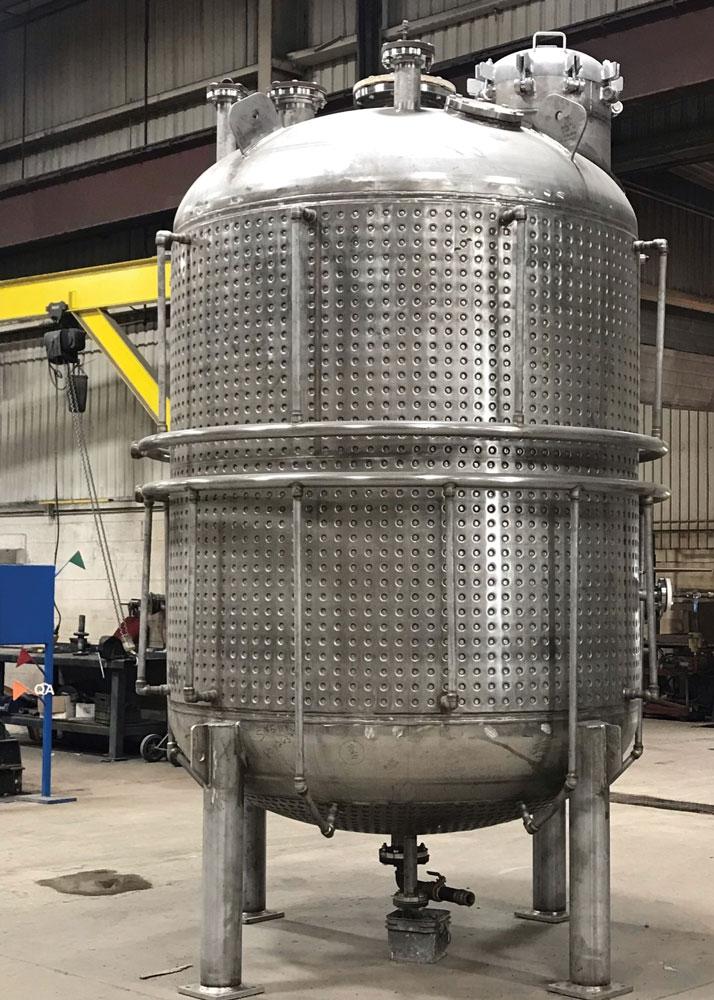
Pressure vessels are generally fabricated from carbon steel, stainless steel, and specialty alloys. Steelcraft has partnered with its customers to produce vessels ranging from 15 to 3,000 PSI.
Future Strengths
Steelcraft has been able to support its customers for nearly 100 years because of its ability to adapt to changing market demands. It also boasts a strong commitment to partnering with its customers to ensure success and longstanding collaboration.
Over the next year, the company will continue to streamline its internal processes, optimize its manufacturing facilities, and hire top-tier talent to increase its competitiveness. Steelcraft is also keeping an eye on changes in the market related to additive manufacturing and new metal and polymer evolutions.
"In addition, there will be a significant focus on realizing synergies within the Arrow Machine and Fabrication Group family of companies wherever possible," said Lunn. "This could include supporting existing customers with a greater breadth of solutions and achieving greater vertical integration on primary manufacturing processes. Overall, the future looks very bright for Steelcraft, its employees, and its customers."
Associate Editor Lindsay Luminoso can be reached at lluminoso@canadianfabweld.com.
Steelcraft, www.steelcraftinc.com
About the Author

Lindsay Luminoso
1154 Warden Avenue
Toronto, M1R 0A1 Canada
Lindsay Luminoso, associate editor, contributes to both Canadian Metalworking and Canadian Fabricating & Welding. She worked as an associate editor/web editor, at Canadian Metalworking from 2014-2016 and was most recently an associate editor at Design Engineering.
Luminoso has a bachelor of arts from Carleton University, a bachelor of education from Ottawa University, and a graduate certificate in book, magazine, and digital publishing from Centennial College.
subscribe now


Keep up to date with the latest news, events, and technology for all things metal from our pair of monthly magazines written specifically for Canadian manufacturers!
Start Your Free Subscription- Industry Events
Automate 2024
- May 6 - 9, 2024
- Chicago, IL
ANCA Open House
- May 7 - 8, 2024
- Wixom, MI
17th annual Joint Open House
- May 8 - 9, 2024
- Oakville and Mississauga, ON Canada
MME Saskatoon
- May 28, 2024
- Saskatoon, SK Canada
CME's Health & Safety Symposium for Manufacturers
- May 29, 2024
- Mississauga, ON Canada













